Animals
-
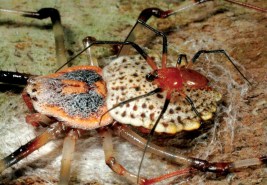 Animals
AnimalsCringe away, guys — this spider bites off his own genitals
After sex, a male coin spider will chew off his own genitals, an act that might help secure his paternity.
-
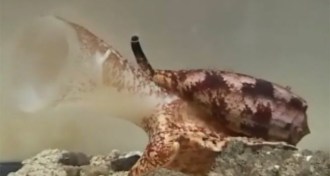 Animals
AnimalsCone snail deploys insulin to slow speedy prey
Fish-hunting cone snails turns insulin into a weapon that drops their prey’s blood sugar and eases capture.
By Susan Milius -
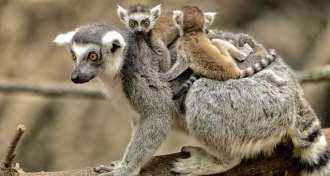 Animals
AnimalsLemurs aren’t pets
The first survey of lemur ownership in Madagascar finds that thousands of the rare primates are held in households.
-
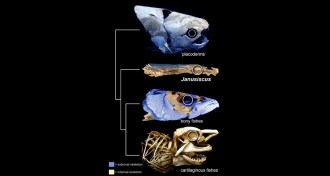 Life
LifeFossilized fish skull shakes up the evolutionary history of jaws
Analysis of a 415-million-year-old fossilized fish skull suggest that the earliest jawed vertebrates probably looked a lot like modern bony fish.
-
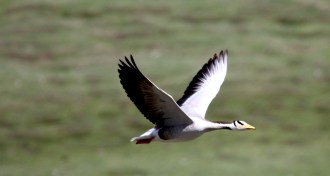 Animals
AnimalsMountain migration is a roller coaster for bar-headed geese
Bar-headed geese rise and fall to match terrain below them when migrating over the Himalayas.
-
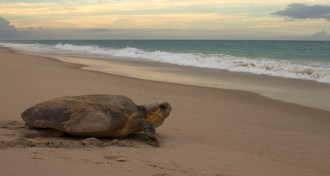 Animals
AnimalsEarth’s magnetic field guides sea turtles home
Over 19 years, geomagnetic fields changed slightly and so did loggerheads’ nesting sites.
By Julia Rosen -
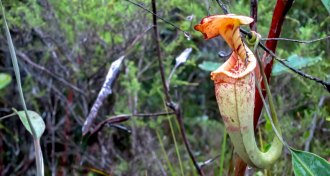 Plants
PlantsTricky pitcher plants lure ants into a false sense of security
Carnivorous pitcher plants exploit social lives of ants as scouts escape and inadvertently lead nest mates to death trap.
By Susan Milius -
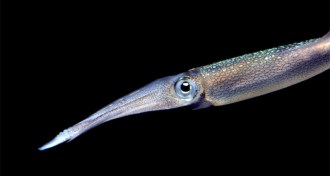 Animals
AnimalsSquids edit genetic directions extensively
In squids, RNA editing means that DNA often does not get the final say in which proteins are created.
-
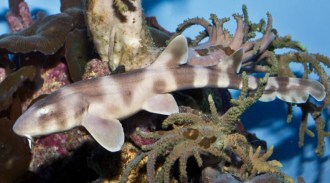 Animals
AnimalsPaternity test reveals father’s role in mystery shark birth
A shark pup was born in a tank with three female sharks but no males. A genetic study finds that the shark must have stored sperm for nearly four years.
-
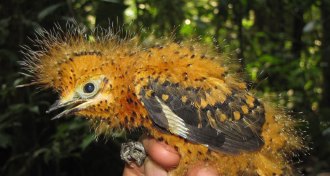 Animals
AnimalsAmazonian bird may act the part of its hairy caterpillar disguise
A rare view of a baby cinereous mourner feeds debate over whether the bird both looks and acts the part of a toxic hairy caterpillar as defense against predators.
By Susan Milius -
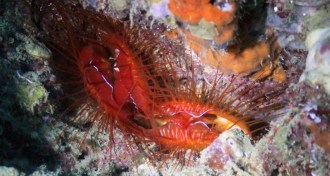 Animals
AnimalsDisco clams may flash chemical-weapons warning
Puzzling disco clam light show might warn predators not to bite.
By Susan Milius -
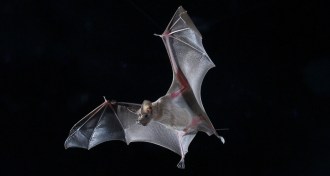 Animals
Animals‘Bag of chips effect’ helps bats find a meal
Bats get a clue to where dinner is by listening to peers attacking prey.